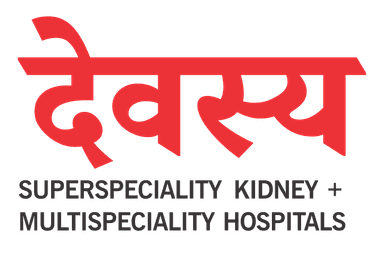Osteoporosis Treatments & Surgery
How Devasya Hospital helps to treat Osteoporosis?
Devasya Hospital in Ahmedabad, or any reputable healthcare facility, can assist in the diagnosis and treatment of osteoporosis. They offer specialized medical teams, diagnostic tools like DEXA scans, and a range of treatment options, including medications and lifestyle modifications. Regular monitoring and patient education are also essential components of their care approach. When seeking the best hospital for osteoporosis treatment, research healthcare facilities in your area, consult with your primary care physician, and consider patient reviews to make an informed choice.
Additionally, Devasya Hospital and other leading institutions prioritize patient-centered care, ensuring that individuals receive personalized treatment plans tailored to their specific needs and risk factors. By combining expertise with a patient-focused approach, these hospitals play a vital role in helping individuals manage and overcome osteoporosis effectively.
FAQs
Osteoporosis treatment aims to prevent fractures and improve bone density. It typically includes lifestyle changes like weight-bearing exercises, a calcium-rich diet, and, in some cases, medications such as bisphosphonates or hormone replacement therapy. The choice of treatment depends on the severity of the condition and individual factors. Consult a healthcare professional for a personalized treatment plan.
Osteoporosis results from a combination of factors, including aging, hormonal changes (such as menopause), genetics, poor nutrition, and lifestyle choices (like lack of exercise and smoking). Medical conditions and certain medications can also contribute. Understanding these risk factors is essential for prevention and early intervention.
Osteoporosis is often asymptomatic until a fracture occurs. However, potential early warning signs can include gradual height loss, stooped posture, and back pain. If you suspect you may be at risk or experience these signs, consult a healthcare provider for evaluation and bone density testing.
Osteoporosis is diagnosed through a bone density test, most commonly a Dual-Energy X-ray Absorptiometry (DEXA) scan. This test measures bone mineral density and helps determine the severity of osteoporosis. Your healthcare provider may also consider your medical history and clinical evaluation in the diagnosis.
The most common signs of osteoporosis include fractures, particularly in the hip, spine, and wrist. These fractures can occur with minor trauma and are a hallmark of the condition. Osteoporosis can also lead to a stooped posture, loss of height, and back pain due to spinal fractures. Early detection and intervention are crucial to prevent these signs from occurring.



